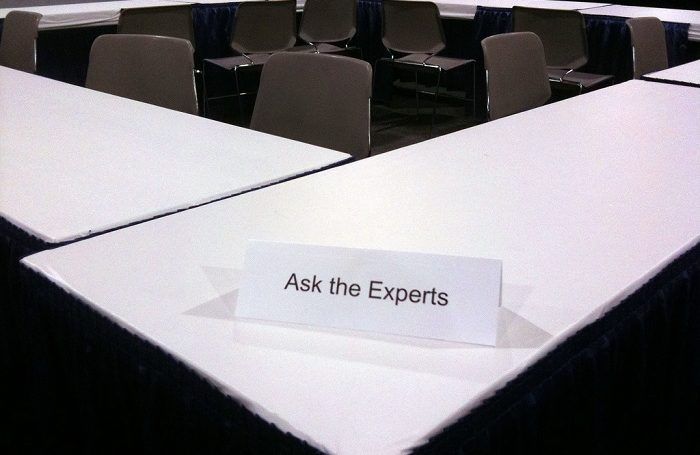
A few weeks back I spent an agreeable three days in Copenhagen with IR colleagues talking and thinking about “Experts” – what they know about conflict and its resolution.
As one might expect in the birthplace of the celebrated “Copenhagen School”, the conversation was both rich and wide-ranging – and the atmosphere bristled with the distrust that has carried the name Copenhagen deep into the forest where IR roams.
The proceedings kicked-off with the circulation of a famous 1978 cartoon from The New Yorker.
In a professional life that makes much of cartoons, this is one of my all-time favourites. It is a brilliant example of the craftsmanship that has made The New Yorker cartoons celebrated across the world: visual oddness requiring thought before it can be appreciated.
These days, however, this particular ‘idea-drawing’ (as The New Yorker officially calls all cartoons) is taking great strain in my personal repertoire because it is used in almost every presentation I am called upon to make.
This overuse is not surprising, however, because the authority of the expert – and ‘expert opinion’, all too often rarefied in the abstract form as ‘expertise’ – fills the very incongruities that IR’s roaming in the forest invariably creates in the mind of the public.
To be plain about it, the role of the expert, expert opinion and expertise chain, is to prevent thought!
So, and this is confessional, I mostly try to discredit the unthinking over-reliance on expert opinion during presentations and the ‘expert cartoon’ – as I call the man crawling in the desert who comes across a weirdly-dressed panel – invariably raises troubling questions about what passes for expertise.
These issues were well explored at the Copenhagen event, I thought.
Not addressed at all was another worry about experts that has always made me skeptical about them: public claims to knowing invariably evince a dangerous elasticity.
Consider this example: as the central preoccupation of public discourse shifted towards money and economics in the wake of Thatcherism, economists and the expertise they provided were drawn upon to shape public opinion on all manner of issues – politics, international relations, social issues: these were all interpreted through the economist’s optic.
This, of course, is where expertise and public discourse blend into that once-exclusive idea of ideology – IR’s understanding of which has been made clearer by the field’s discovery of Gramsci twenty-odd years ago.
One all-too-seldom mentioned outcome of the drift towards economics is how – in places like Africa – IR lost its purchase on ideas and simply fronted for the interests of business. As a result, understanding of international relations issues is invariably intertwined with the economic prospects for individual states.
The normative drift of this kind of “expertise” is plain: only “free” market economics can “free” Africans! Parenthetically, much of the ongoing anti China-in-Africa diatribe – much of it repeating the anti-Communist shibboleths of Cold War logic – is found in this market-centered rhetoric.
At this point, we are close to another of my pet peeves – the Think Tank, and the role it plays in rarefying and reproducing forms of knowing, and the increasingly overt ideological coloration of these particular under-explored institutions that roam the same forests as IR.
Of course, they enjoy a close family resemblance to IR – often speaking in the same tongue. But it is rare to find one of these that is not closely intertwined with some outside interest – indeed, show me one, and I’ll mail you a Pound!
Further Reading on E-International Relations
- An ‘Expert’ Perspective on Brexit… Means Brexit
- Opinion – Government Was Made for the Coronavirus
- Opinion – Chipko’s Lessons for Today’s Global Environmentalism
- Opinion – Queer Experiences of Atrocity Crimes and the Fight for LGBTI+ Rights
- Opinion – Protest, Interrupted? Climate Activism During the Coronavirus Pandemic
- Opinion – Can the US and UK Further R2P’s Evolution?